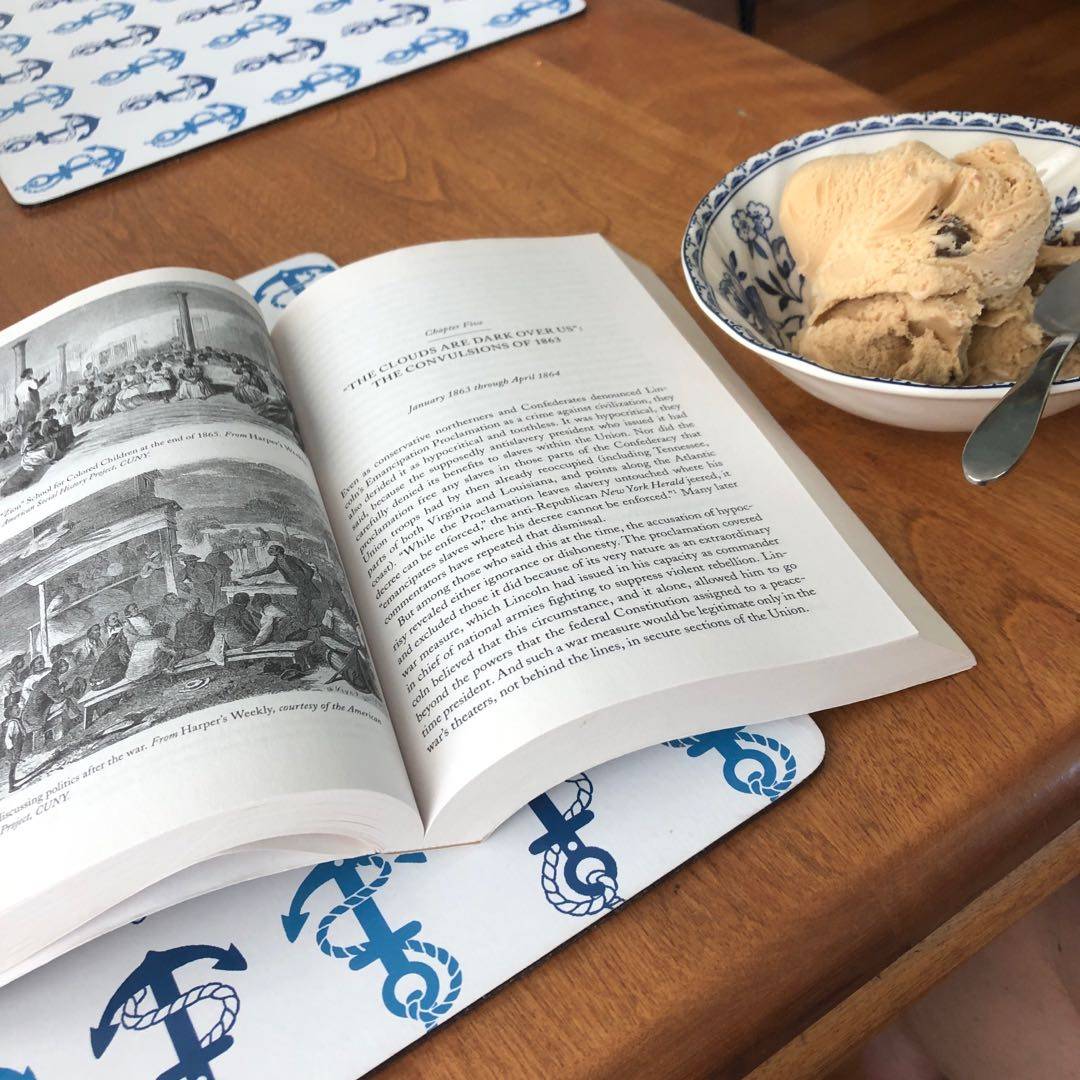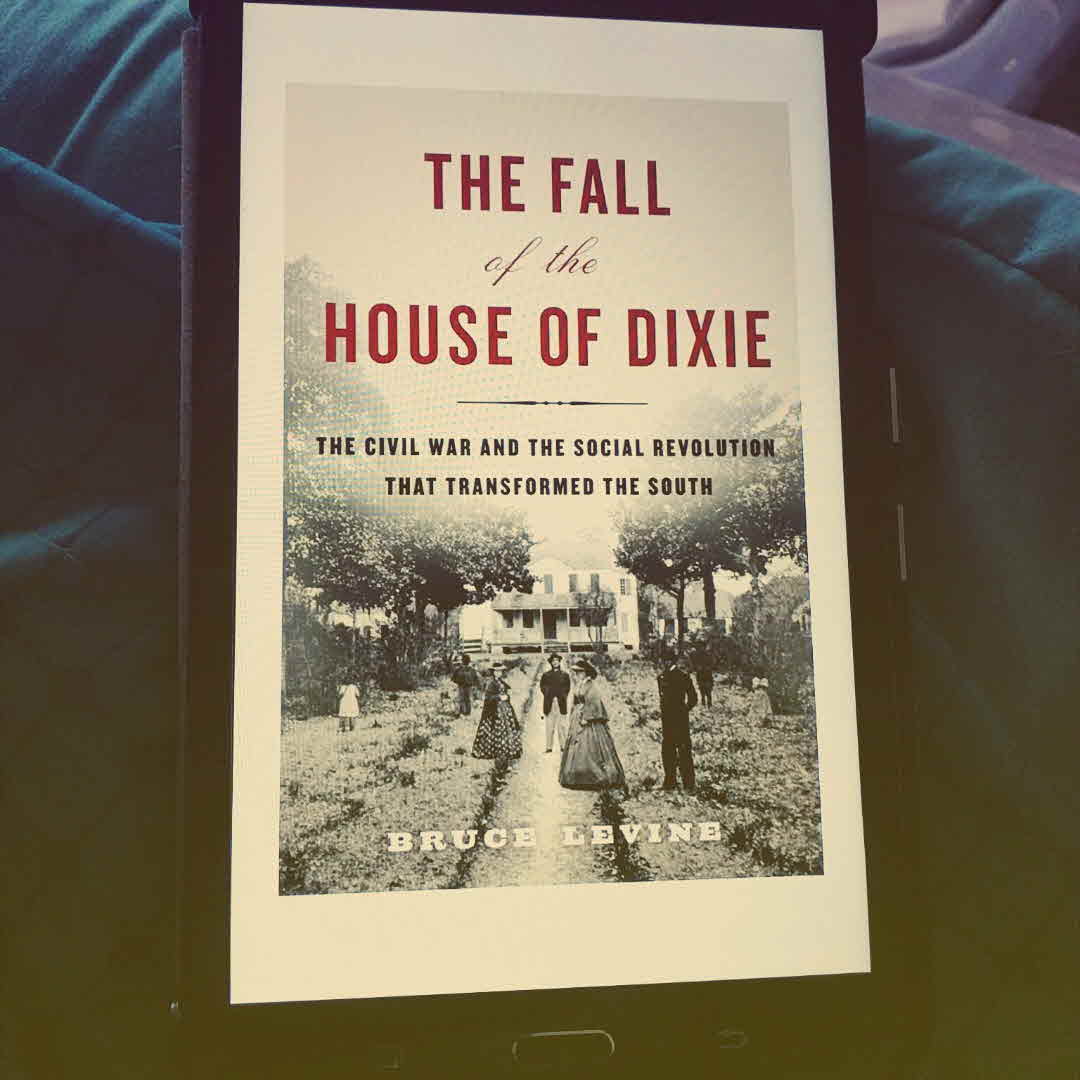
To continue on a theme....
Coffee ice cream > Confederates 😂 #summerliving #learnhistory #icecreamforlunch

To continue on a theme....
Coffee ice cream > Confederates 😂 #summerliving #learnhistory #icecreamforlunch

Absolutely loved this well-researched book about the social and political history of the United (and Confederate) States of America during, immediately preceding, and following the Civil War. Details reasons for war, political decisions surrounding battles and secession, racism and utilitarianism regarding slavery, and the role of women, non-slave holders, and political leaders. Really just an excellent book. 5⭐️

Who else gets excited when their birthday has historical relevance?! Robert E Lee realized the South was fighting a hopeless war on the date of my birth, 1865!

I'm really enjoying this book about the fall of the South's "peculiar institution" - I'm reading it at the same time as The Narrative of Sojourner Truth, and that combination is especially poignant.

Highlight is a typical sample - the Civil War's backdrop was as complex a political time as our own, yet we oversimplify it as North v South, Good v Bad. Some southerners didn't have any desire to fight for rich plantation owners, and some supported abolition. Some northerners were devout racists. Here, William Tecumseh Sherman rejects racial equality and ignores pleas from even Lincoln to allow black soldiers to serve for his Union army.

Excited to get into this one for #NonFictionNovember! I'm hoping it's as good as I want it to be. #southernhistory